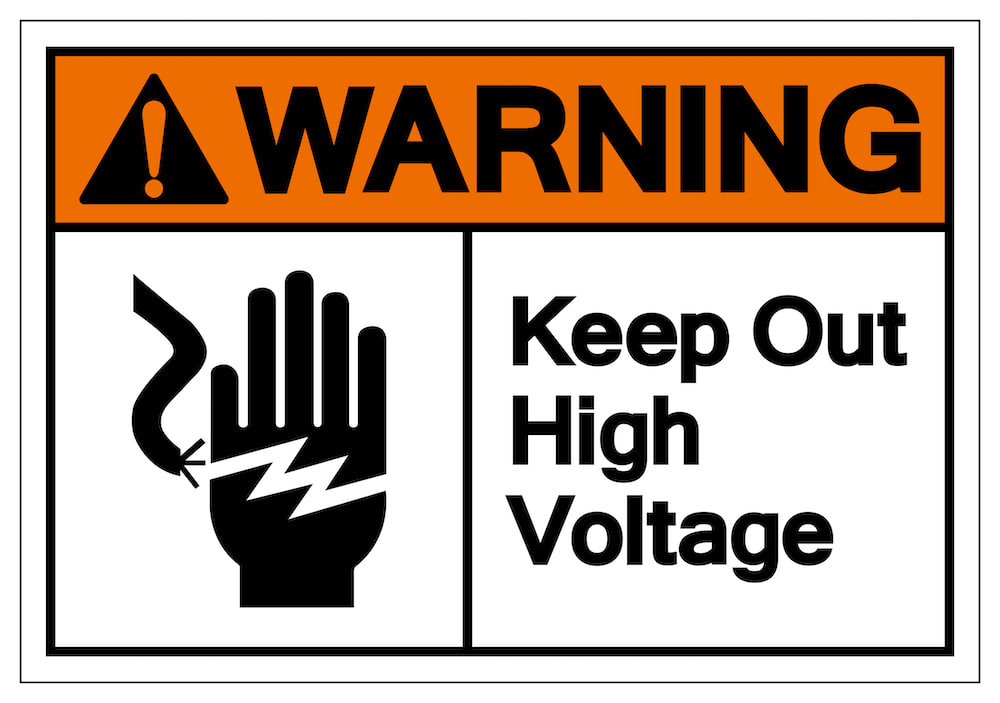- Published 19 Jul 2024
- Last Modified 19 Jul 2024
- 7 min
RIDDOR: A Guide
RIDDOR legislation requires employers to report workplace deaths, injuries, illnesses, and near-miss incidents. This guide explains RIDDOR laws, processes, and the penalties for non-compliance.

Reviewed by Stephen Bettles, Technical Support Engineer (June 2024)
Injuries, deaths, and illnesses from workplace hazards remain a serious concern in the UK, but they have a system of accountability under RIDDOR legislation. The following RIDDOR summary will explain what incidents these regulations cover, who has reporting responsibilities, how to report RIDDOR incidents, and how the HSE enforces all this.
What Does RIDDOR Stand For?
RIDDOR stands for the Reporting of Incidents, Diseases and Dangerous Occurrences Regulations of 2013, which is a system of mandated reporting of workplace incidents.
What is RIDDOR?
RIDDOR is a way to ensure that workplace deaths, injuries, illnesses, and other incidents do not go unreported in the UK. RIDDOR legislation requires employers to promptly report these incidents to the relevant authority and to keep records of these incidents.
Why is RIDDOR important? RIDDOR regulations are a system of accountability for employers in their duty to provide safe workplaces. RIDDOR assures employees and the public that serious workplace safety incidents will be noticed and remembered and that this will result in employers striving to avoid incidents in the first place. This encourages improved workplace safety, which benefits everyone.

What Must Be Reported Under RIDDOR?
RIDDOR legislation requires reporting and recordkeeping of the following workplace incidents:
Deaths: Workplace or work-related deaths always require reporting under RIDDOR.
- This includes deaths due to workplace exposure to biological agents
- Deaths also require a RIDDOR report if they are a direct result of an injury sustained at work up to a year prior
- The death of a self-employed person at a site they control does not require a RIDDOR report
Injuries: The following ‘specified injuries’ require a RIDDOR report if an employee sustains one at work:
- Bone fracture, excluding fingers and toes
- Amputation
- Unconsciousness
- Blindness or visual impairment
- Burns or scalding
- Scalping
- Injuries from enclosed space work
- Brain or internal organ damage due to a crush incident
The following injury cases also require RIDDOR reports:
- Any of the above-specified injuries occurring (to anyone at all) within a hospital
- Any other injury causing a worker to be absent from work for at least a week
- Any injury a non-employee sustains at a workplace and then immediately requires hospitalisation for
Diseases: The following diseases require a RIDDOR report if someone contracts one at work or due to working conditions:
- Cancer developed from workplace carcinogens, mutagens, or radiation
- Carpal tunnel syndrome or hand-arm vibration syndrome gained from vibrating or percussive tools
- Cramps, tendonitis, or tenosynovitis from long-term repetitive hand or arm movements
- Asthma due to exposure to respiratory sensitisers
- Dermatitis due to exposure to skin irritants
- Diseases contracted from biological agents
- Various contagious diseases contracted as part of offshore work
Dangerous occurrences: These are workplace incidents that did not kill or injure someone, but easily could have. ‘Near misses’ and ‘near hits’ qualify as dangerous occurrences. Some specific qualifying incidents include:
- Lifting equipment failures
- Blowouts of pressure-containing vessels
- Contact with insulated electric lines with voltage above 200 V
- Electrical fires or explosions
- Ignition of stored explosives
- Fires causing injuries requiring first aid
Additionally, industries like mining, quarrying, railways, and offshore have their own specific qualifying incidents.
Natural Gas Incidents and Concerns: People responsible for natural gas containment have duties under RIDDOR to report deaths or injuries they know or suspect are due to gas leakage.
Ensure you study the RIDDOR-qualifying injuries, diseases, and dangerous occurrence lists in detail to fully understand how these regulations affect your business.
Who Should Submit a RIDDOR Report?
Submitting a RIDDOR report primarily falls to the employer as the ‘responsible person,’ but RIDDOR legislation also places this responsible person duty on:
- Self-employed people
- People in charge of a work site at the time of an incident requiring a RIDDOR report
- People involved in natural gas containment who learn of deaths or injuries that may be due to natural gas leakage
Employees do not generally have the duty to report these incidents, though RIDDOR legislation does empower them to speak up to HSE authorities if they feel that an employer is neglecting to report or address a safety incident or concern. Members of the public also have this right.
RIDDOR Report Forms
The best way to report a RIDDOR incident is to use the online RIDDOR forms, though HSE also allows reporting deaths and injuries over the phone. HSE has separate RIDDOR forms for injuries (including fatal ones), diseases, dangerous occurrences, and natural gas incidents or concerns.
RIDDOR legislation also requires the responsible person to maintain thorough records of the incident.
Report a RIDDOR Incident
When a RIDDOR incident happens, the responsible person must promptly involve the relevant HSE enforcing authority. This authority party will vary based on the nature of the workplace. Examples include:
- The Department of Education
- The Environment Agency
- The Office of Rail and Road
- The Civil Aviation Authority
- The Maritime and Coastguard Agency
- His Majesty’s Inspectorate of Prisons
- The Office for Nuclear Regulation
As for specific actions to take, ensure you do the following promptly to satisfy the strict RIDDOR reporting timescales:
- Inform the HSE enforcing authority of the incident as soon as possible
- Submit the RIDDOR report no later than 10 days after the incident
- For workplace injuries that only qualify under RIDDOR upon a worker missing a week of work, submit a RIDDOR report no later than 15 days after the initial incident
- For a workplace-caused disease, the responsible person must report it without delay upon learning the diagnosis
Any demonstrable delays in these actions can lead to penalties.
What Happens After a RIDDOR Report?
The Health and Safety Executive (HSE) investigates all RIDDOR-reported deaths, injuries, and illnesses. The HSE can investigate other tips it receives, but it treats RIDDOR incidents as the highest priority. Through an investigation of the facts, the HSE identifies the incident’s root cause and whether it violated legislation. This may lead to corrective action or enforcement. HSE enforcement actions include giving information and cautions, revoking or altering licences or approvals, and prosecution.
Note that investigating gas-related RIDDOR reports falls under the Gas Safety (Management) Regulations of 1996.
RIDDOR Penalties
Failing to perform the duties of RIDDOR legislation constitutes an offence under the Health and Safety at Work Act (HSWA). If the responsible person in a RIDDOR incident does not meet their informing and reporting responsibilities, misses the RIDDOR reporting timescales, or keeps inadequate records of the incident, they may face prosecution. As with all HSWA offences, a Crown Court can impose sentences of up to two years in prison and unlimited financial fines for RIDDOR violations.
Employers thus have plenty of reasons to comply with RIDDOR legislation - protecting people they’re responsible for, keeping their business’s reputation intact, and maintaining business operations.
RIDDOR’s History
RIDDOR first came into effect in 1985, and it saw major revisions in 1995 and 2013, the latest of which simplified reporting requirements. RIDDOR replaced the Notification of Accidents and Dangerous Occurrences Regulations of 1980 (NADOR), which similarly laid out requirements for employers to record and report workplace incidents.
These systems, spurred by the constant factory and mining deaths of centuries past, are part of a long history in the UK of establishing systems to hold employers accountable for workplace safety.
A RIDDOR Checklist
When a safety incident happens at your workplace, consider the following when deciding if you need to submit a RIDDOR report:
- Did someone die?
- Did someone suffer a RIDDOR-specified injury?
- Did someone suffer an injury that caused them to be absent from work for a week or immediately hospitalised?
- Did someone contract one of RIDDOR’s listed illnesses due to workplace conditions?
- Was the incident a dangerous occurrence as RIDDOR defines them?
If you answer ‘yes’ to any of these questions:
- Inform your relevant HSE enforcing authority as soon as possible
- Submit a RIDDOR report to that authority within the RIDDOR reporting timescales
- Keep and maintain records of the incident
All this will satisfy your duties under RIDDOR legislation, and hopefully lead to improved practices that will avoid further safety incidents.
To proactively make your workplace safer, though, browse RS’ safety signs, personal protective equipment and first aid supplies.


